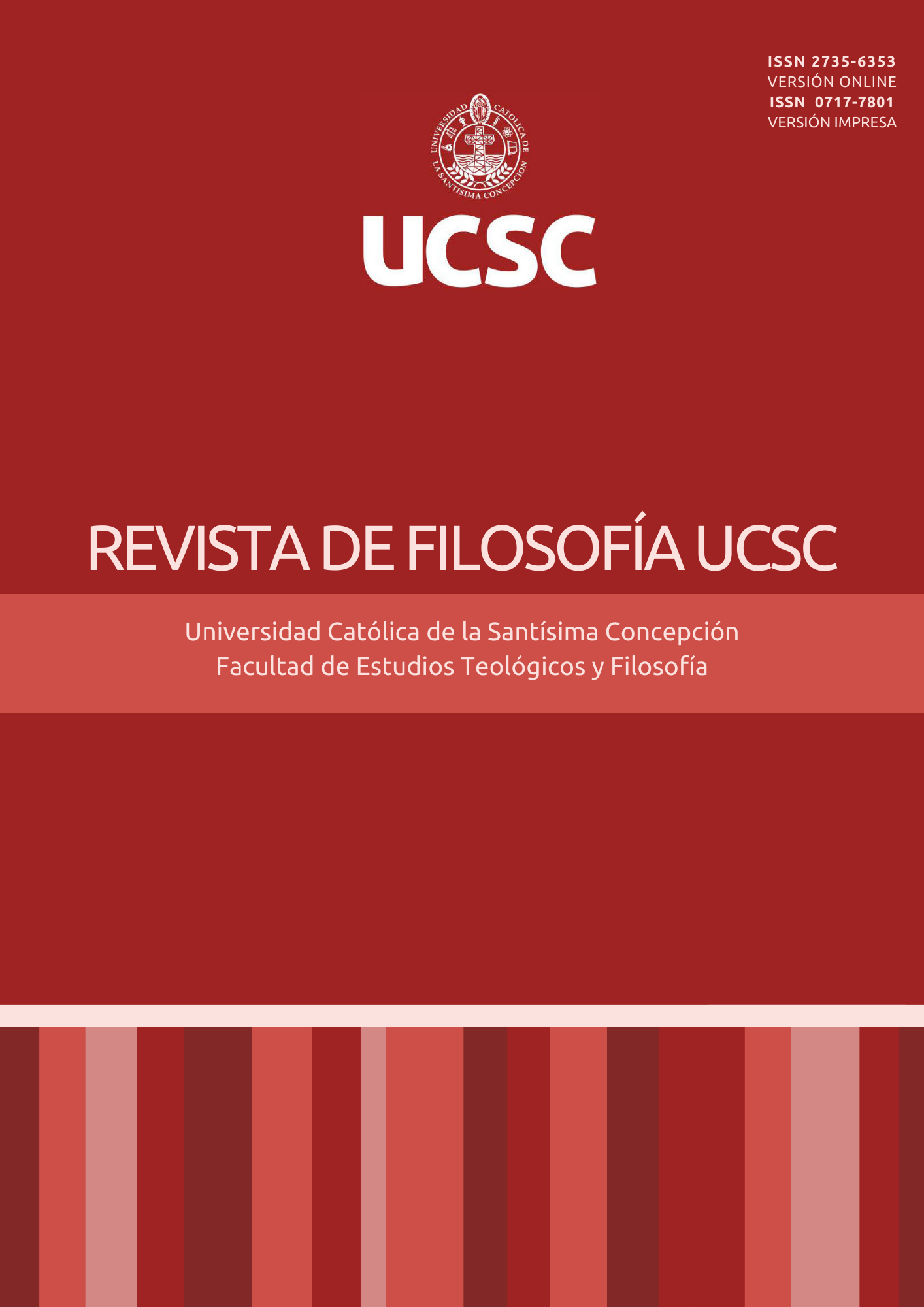Figures of Irony: The Phenomenology of the Spirit before the irruptions of the self
Main Article Content
Abstract
If what Hegel asserts in Phänomenologie des Geistes regarding philosophy as the consummation of skepticism is to be regarded as one of the correct modalities of interpreting the phenomenological method, then it is clear that overcoming such skepticism will constitute the novelty that encourages the process of knowledge towards its absolute culmination. Thus, it is evident that the conceptual kinship that can be established between skepticism and romantic thought binds both of them so closely to the Hegelian phenomenological procedure that overcoming skepticism will also constitute the overcoming of romanticism as an ironic modality of thought. In this sense, we offer in this work an analysis of the concept of Irony as it is presented in the Phenomenology of Spirit through its phenomenological figures.
Article Details
Section

This work is licensed under a Creative Commons Attribution-NonCommercial 4.0 International License.
The Revista de Filosofía UCSC is an open access journal and does not charge for publication. In addition, it regulates its Copyright and access policy according to the Creative Commons Attribution-NonCommercial 4.0 International Public License (CC BY-NC 4.0), therefore sharing (reproducing and distributing the material in any medium or format) and adaptation (modifying, transforming, and creating from the material) is allowed as long as proper credit is given and the citation is included with the corresponding data. Moreover, it is not allowed to use the material for commercial purposes.
How to Cite
References
Alfaro, C, V. (2019). El vínculo entre la figura del Espíritu denominada ‘alma bella’ y el ‘mal infinito’ o ‘mala infinitud’ en la filosofía de Hegel, Eidos, (30), 158-181.
Behler, E. (1969). Friedrich Schlegel und Hegel, Hegel-Studien, (2), 203-250.
Benjamin, W. (2017). El concepto de crítica de arte en el Romanticismo alemán.Abada.
Diderot, D. (2018). El sobrino de Rameau. Losada.
Hegel, G.W.F. (1980). Phänomenologie des Geistes (Gesammelte Werke 9). Hrsg. von W. Bonsiepen und R. Heeds, Felix Meiner. Trad. al español: Duque, F. (2022) Fenomenología del Espíritu. Abada.
Hegel, F. G. W. (1962). Sämtliche Werke Philosophische Bibliothek, B 62b, Felix Meiner. Trad. al español por Serrano, V. (2000) Fe y Saber o la filosofía de la reflexión de la subjetividad en la totalidad de sus formas como filosofía de Kant, Jacobi y Fichte. Biblioteca Nueva.
Hegel, G. W. F. (1985). Vorlesungen über die Ästhetik. Verlag das europäische Buch. Trad. de A. Muñoz, B. (2017) Lecciones de Estética. Akal.
Hegel, G.W.F. (1978). GW 11, Wissenschaft der Logik. Bd. 1: Die objektive Logik (1812 / 1813), Hamburg, Felix Meiner. Trad. De Duque, F. (2019). Ciencia de la Lógica. La lógica objetiva. Abada.
Jankélévich, V. (2015). La Ironía. Las Cuarenta.
Pöggeler, O. (1999), Hegel Kritik der Romantik. Fink.
Rebentisch, J. (2011). Die Moralität der Ironie. Hegel und die Moderne, Willkür. Freiheit und Gesetz II, 141-182. Trad. al inglés por Smith, D. (2013), in Symposium, vol. 17, no. 1, pp. 100-130.
Vieweg, K. (2002a). Ironía Romántica como Skepsis Estética. Sobre la Crítica de Hegel al proyecto de una «poesía trascendental», Estudios de Filosofía, (25), 53-72.
Vieweg, K. (2002b). La recepción hegeliana de la Skepsis Antigua y Moderna. Sobre la prehistoria del concepto del ‘escepticismo que se consuma a sí mismo’, Estudios de Filosofía, (25), 11-22.




